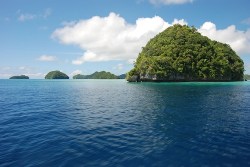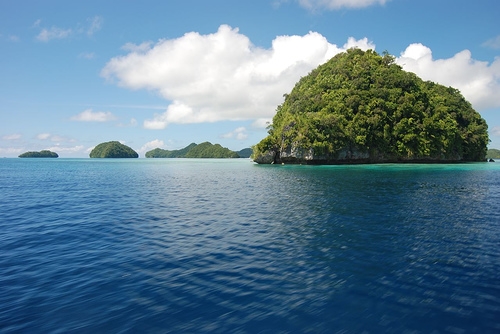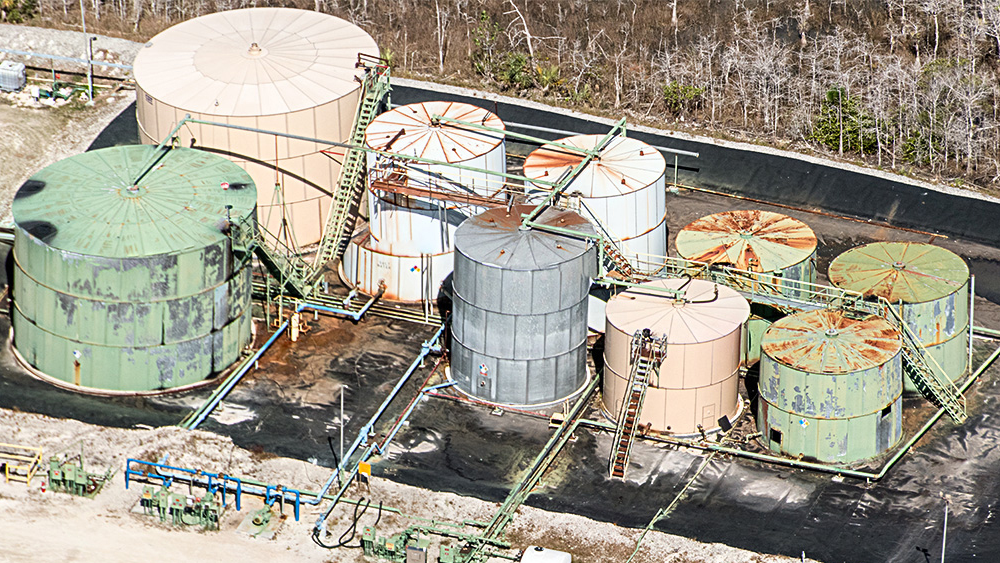
A few of Palau’s hundreds of tropical islands. (Photo by Nick Lucey.)
The tiny Pacific island nation of Palau is a paradise on Earth. This band of several hundred islands is home to some of the world’s most stunning marine life, and to the 20,000 people who live there.
But like many low-lying nations across the world, Palau is threatened by the effects of climate change and sea-level rise. Palau’s coasts are being eroded, its local farmlands tainted by seawater, and its valuable reefs threatened. Johnson Toribiong, president of Palau, calls the damage he’s witnessing “a slow-moving tsunami.”
But Palau isn’t resigning itself to a doomsday fate. Palau has crafted a novel legal strategy at the United Nations to try to hold the industrialized world accountable for the damage caused by greenhouse gas emissions, which most scientists say are driving climate change.
Could this David vs. Goliath strategy actually work? Need to Know went to Palau to investigate. Here’s our video report:
[protected-iframe id=”5fdca5a91a22520346698df604bc4d3a-5104299-30176283″ info=”http://dgjigvacl6ipj.cloudfront.net/media/swf/PBSPlayer.swf” width=”470″ height=”328″]
As Palau’s legal initiative at the United Nations gained momentum, the United States emerged as its biggest critic. We were told the U.S. has exerted considerable diplomatic pressure on Palau and some of its allies to drop the initiative.
In a memo, circulated at the U.N. a few months ago, the U.S. argues that while it shares many of Palau’s goals with regards to climate change, the U.S. believes Palau’s legal initiative could have a “negative effect” on other longstanding international climate change negotiations, like the ones recently held in Durban, South Africa.
Palau’s ambassador to the United Nations, Stuart Beck, strongly disagrees. He says international negotiations haven’t done nearly enough to tackle climate change, calling the process “feckless.”
“If the current process had a clear direction, and a clear focus,” Beck said, “then I could guarantee you we would not be messing with it because it would already be mitigating climate change.”
Despite the current diplomatic struggle between the U.S. and Palau, the two countries actually share a long and deep relationship. Palau was the site of major battles between the United States and Japan during World War II, and wreckage from that war can still be found scattered all over the islands. After the war, the U.S. was granted control of Palau, but later supported its independence and helped craft the Palauan constitution.
Those close ties remain today: Palauan kids are taught English in school, and the U.S. dollar is the official currency. In exchange for the exclusive right to potentially put military bases on the islands, the U.S. gives Palau millions of dollars in financial support. Palau’s citizens can join the U.S. military, and have fought and died in Iraq and Afghanistan. Palau also votes in near sync with the U.S. at the United Nations, including votes in support of Israel where the U.S. often has few other allies. Several years ago, Palau was one of the only nations in the world to agree to take in several freed prisoners from Guantanamo Bay, Cuba.
 This story was produced by Need to Know as part of the Climate Desk collaboration.
This story was produced by Need to Know as part of the Climate Desk collaboration.


